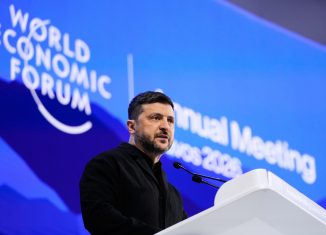MADOFF GONE FOR LIFE!
A federal district court judge sentenced Bernard Madoff to 150 years in a federal prison as a consequence to his plea of guilt to eight charges filed against him. This was done with (a) no grand jury hearing any witnesses, (b) no trial jury evaluating any evidence, and (c) no proof of anything presented to the court. Madoff’s guilty plea was to an “Information”, which reads like an indictment, but which is generated by the US Attorney, not a grand jury. If convicted by a trial jury of all charges in the Information, Madoff would have been exposed to 150 years. Thus, while he may have saved the federal government millions of dollars and three to four years of time by pleading guilty, but he gained nothing for himself. The plea of guilt was highly unusual because of (a), (b) and (c) above, and also because he had no agreement whatsoever with the government. He literally received nothing in return for his plea.
When a long-standing criminal enterprise is being prosecuted, it is not uncommon for the prosecutors to break the enterprise down into as many discreet, specific crimes as it can so as to expose the defendant to as much jail time as the Courts will allow and the law will condone. Once there has been a conviction or guilty plea, the Court at the time of sentencing has the discretion to sentence concurrently or consecutively. Consecutive sentences run one after another; and the second sentence, for example, will not begin until the first is completed. Concurrent terms are served together; at the same time. In exercising their discretion as to whether to impose consecutive or concurrent terms, Courts usually look at the severity of the harm caused, the duration of the criminal behavior, the defendant’s personal remorse and willingness to compensate his victims, and whether the crime was an aberration or a livelihood for the defendant. Madoff came down on the wrong side on all these criteria.
While judges have the power to exercise their discretion, which in this case, ran from eight to 150 years, that discretion should be exercised independent of the wishes of the government, of any anticipated cases coming the Court’s way, and independent of any “message” being delivered to persons who might contemplate behavior similar to the defendant. Judges must also be aware of proportionality; that is, a comparison of this crime and its appropriate punishment to other crimes must be rational. Ivan Boesky, Jeff Skilling, and Michael Milken all causes billions in losses, and received reasonable punishments; punishments consistent with others similarly situated. In an era where murderers and rapists are set free after 25 or 30 years, a sentence of 150 years demeans the Court by appearing so wildly out of proportion as to make the Court sound like a mouthpiece for the mob of Madoff victims who want his blood. The Courts do not work for prosecutors and are not in the business of sending “messages” for them. As well, a sentence that is so wide of the mark is a candidate for reversal. Here, where the government proved nothing, but where the harm is palpable, a sentence of 25 years would have been more dignified, served the same purpose, and have been less vulnerable to reversal on appeal.







